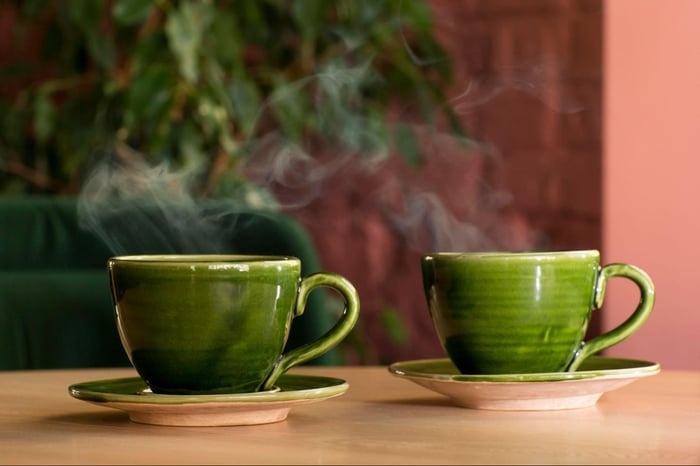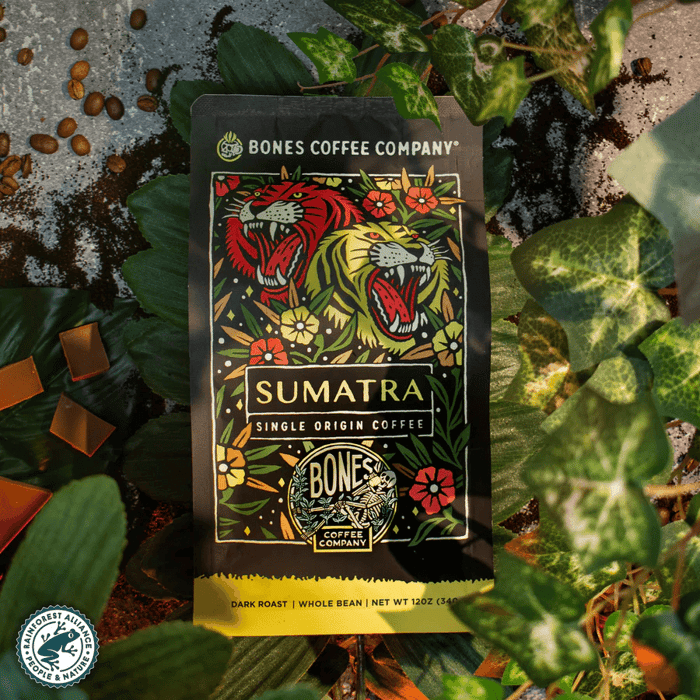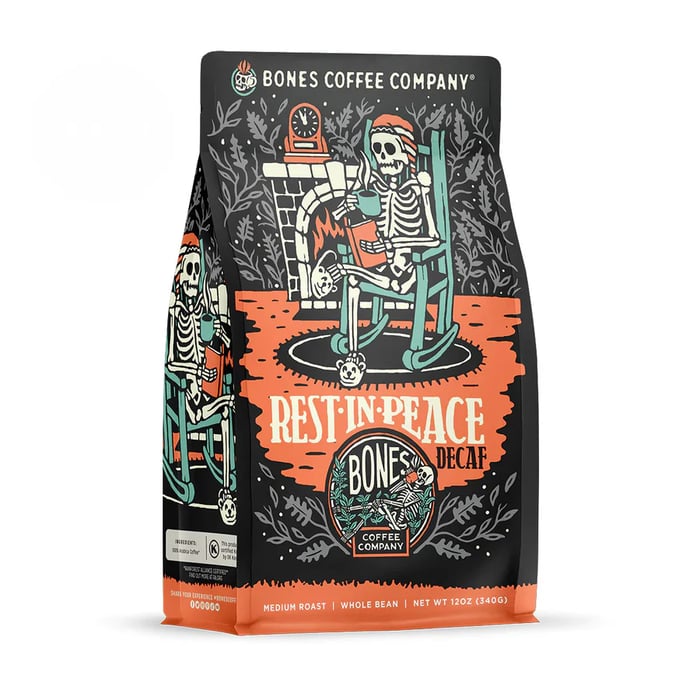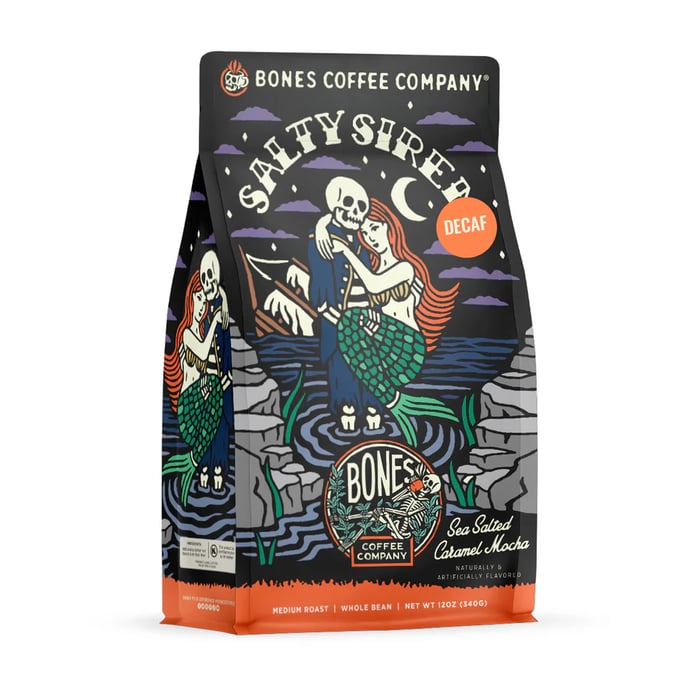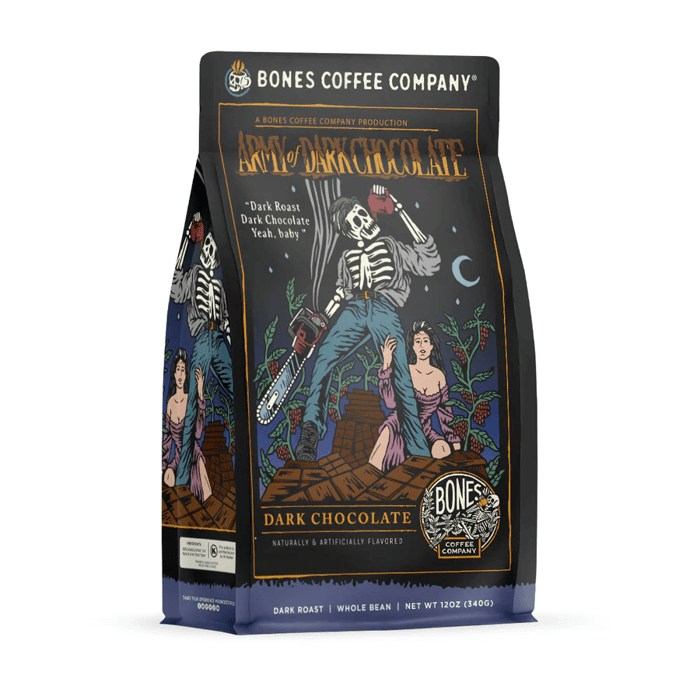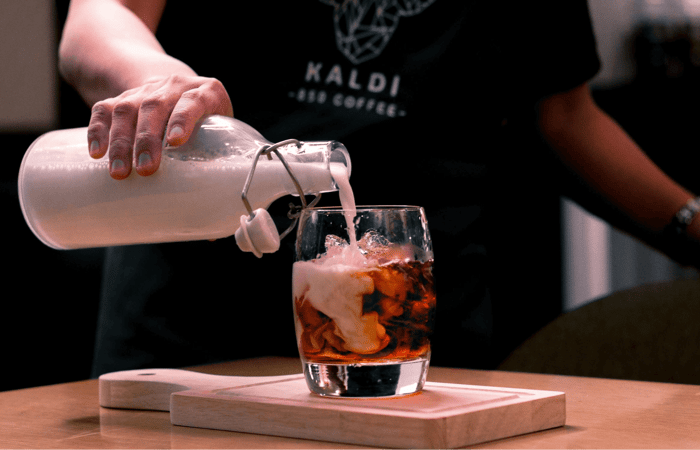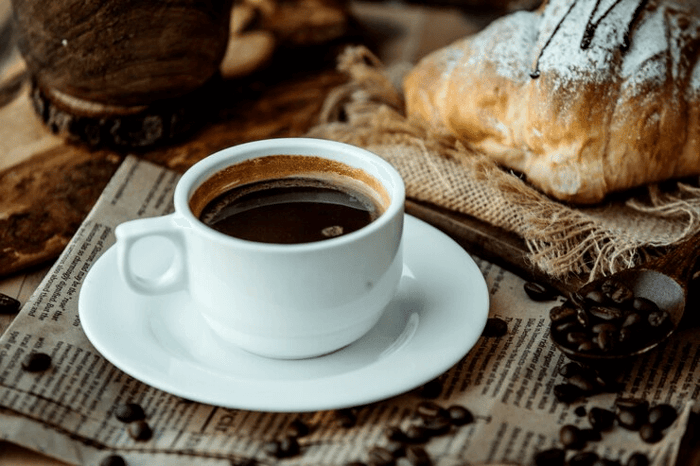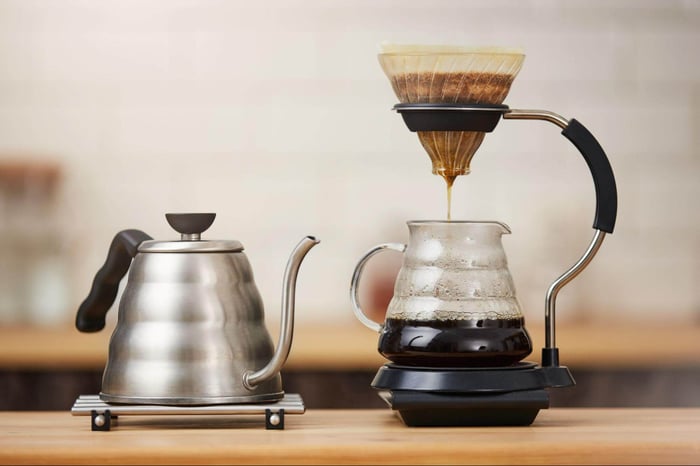Looking for an energy boost that fits your lifestyle without leaving you wired or crashed? While a matcha beverage and a cup of coffee both offer a dose of caffeine, they deliver it in very different ways.
Whether you're savoring a cup of matcha made from finely ground tea leaves or considering coffee as your go-to brew, understanding how each option stacks up can help you choose smarter.
This guide explores how both drinks affect energy, focus, stress, and taste—and how today’s modern coffee options have evolved to meet your needs with the perfect balance of bold flavor, smooth function, and everyday enjoyment.
Flavor, Texture, and Experience
Coffee offers a bold and broad flavor range, shaped by roast level and brewing method. From bright, acidic light roasts to deep, smoky dark roasts, there’s a style for every palate, whether you prefer sharp brightness or rich, earthy depth.
Matcha compared to coffee delivers a very different drinking experience. Made from finely ground whole green tea leaf, matcha powder produces a creamy, frothy texture when whisked into water or milk.
Its taste is umami-forward, grassy, and often naturally sweet, with a vegetal character that sets it apart from regular green tea.
Some fall in love with the distinct matcha taste instantly, while others find it an acquired appreciation—especially when working with traditional, ceremonial-grade matcha known from the Japanese tea ceremony.
While coffee is typically brewed—by drip, French press, cold brew, or espresso machine—matcha relies on suspending the fine powder in water rather than steeping. This unique preparation retains all the nutrients from the tea leaves, unlike regular green tea where the leaves are steeped then discarded.
Both coffee and matcha are easily customizable. You can enjoy them straight or create indulgent drinks like a matcha latte or a flavored specialty coffee, adding milk, spices, or natural sweeteners to match your preferences. If you’re curating women's wellness with coffee rituals, consider low-acid and decaf choices for gentler, anytime sipping.
Does Matcha Keep You Awake Like Coffee?
Let’s talk caffeine intake. Does matcha keep you awake like coffee? It can—but with key differences.
Coffee’s high caffeine content is absorbed rapidly, stimulating the adrenal system and raising cortisol levels, heart rate, and alertness. That’s why people who first started drinking coffee often rely on it for immediate energy and focus.
Matcha green tea, by comparison, delivers less caffeine per serving but offers a slower, steadier energy boost. Drinking matcha provides caffeine together with L-theanine, promoting calm alertness and reducing the chances of a jittery crash.
A cup of matcha made by whisking matcha powder into hot water brings a frothy, smooth drink ideal for sustained focus over a longer period.
While matcha tea provides balanced, sustained energy, it may not always deliver the fast mental lift you need during busy mornings or high-energy tasks. For those situations, coffee remains the go-to among all beverages.
Here’s when coffee typically outperforms matcha:
- Tackle early meetings and stay sharp from the start
- Power through workouts when you need fast energy
- Boost focus quickly to meet tight deadlines and intense demands
For moments when you need rapid, reliable mental clarity, drinking coffee simply can’t be matched.
Fun Fact: The caffeine in matcha is bound to catechins—slowly releasing energy while avoiding dramatic spikes and crashes. |
How Much Caffeine is in Matcha vs Coffee?
One of the most common questions in the matcha caffeine vs coffee discussion is whether drinking matcha delivers more caffeine than coffee. The answer is no—but how the caffeine is absorbed makes a big difference in how it feels.
Beverage | Caffeine (per 8 oz serving) |
Matcha | 25–70 mg |
Brewed Coffee | 95–200 mg |
Coffee typically contains more caffeine than matcha, averaging 95 to 200 mg per 8 oz cup depending on the brew and bean quality. In contrast, drinking matcha provides around 25 to 70 mg of caffeine per serving.
Yet caffeine absorption matters. In matcha, caffeine is paired with L-theanine, an amino acid that promotes calmness and focus. This creates a slower release of energy, resulting in more sustained energy and a smoother, longer-lasting effect—without the sudden spike or crash.
Coffee delivers faster stimulation and higher concentration boosts, making it ideal for moments when you need quick mental sharpness.
Some people are more sensitive to caffeine and fear that coffee might feel overwhelming. Want to know the exact caffeine numbers? Check out our guide on green tea vs coffee caffeine content for a detailed breakdown. But it’s not the caffeine alone—it’s the quality, roast, and brewing method that make the real difference.
Poorly roasted or over-extracted coffee often creates a harsh experience, while high-quality, small-batch roasted options deliver bold flavor with far fewer side effects.
Worried about too much caffeine? Don’t be. With Bones Coffee’s lineup of flavorful decaf and low-acid roasts, you can still enjoy the rich taste and comforting ritual of coffee—without overstimulation.
How Each One Impacts Focus and Stress
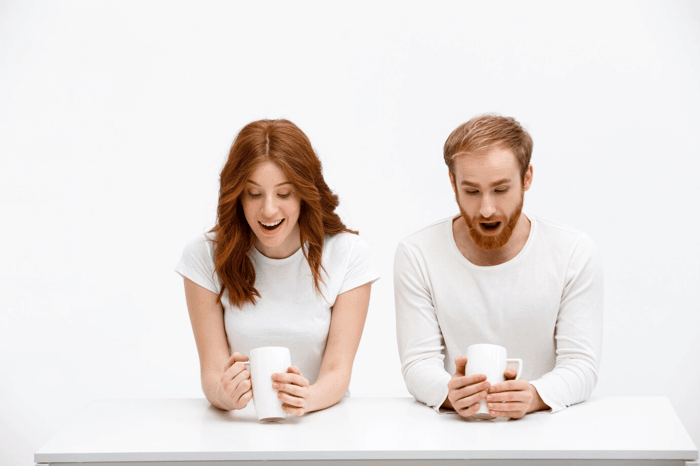
Both coffee and matcha green tea are known for boosting focus and enhancing energy levels, but they do so in different ways.
Coffee rapidly stimulates the release of dopamine and norepinephrine, chemicals that naturally increase motivation, sharpen attention, and deliver quick mental clarity.
Whether you brew it fresh or enjoy convenient instant coffee, caffeine in coffee provides a fast, noticeable lift—often critical for tackling early meetings, high-intensity projects, or long commutes.
When consuming matcha powder beverages, the effect is slower and steadier. A cup of high-quality matcha, made by whisking finely ground green tea powder with hot water, raises focus without the sudden spike.
However, matcha contains less caffeine than coffee, which makes it better suited for maintaining energy during tasks that demand calm, steady concentration like reading or mindfulness practice.
In the matcha vs coffee comparison for focus, it ultimately depends on your needs. Both beverages also bring meaningful health benefits: coffee, rich in antioxidants like chlorogenic acid, helps support metabolic and neurological health, while regular green tea and matcha powder drinks deliver protective catechins that promote overall wellness.
Choosing between matcha tea and coffee isn’t about finding a better beverage—it’s about matching the right energy to what your day demands.
Which One Fits Your Lifestyle
Choosing between matcha vs coffee depends on your goals, your preferred energy levels, and how your body works differently based on their caffeine content, and how much caffeine you actually need throughout the day.
- For fast, bold energy and intense focus, coffee is a strong performer, with higher caffeine content that quickly boosts performance.
- For mental clarity, reduced anxiety, and stable energy levels, matcha green tea provides a smoother, more versatile option. If you’re working to support stress management, hormone balance, or better sleep, drinking matcha may be a helpful addition to your routine.
You don’t have to pick just one. Many people start with coffee in the morning to maximize alertness, then switch to matcha green tea in the afternoon for a lighter, sustained boost that doesn’t disrupt evening wind-down routines.
Knowing how much caffeine your day demands—and when you want it most—can help you choose the right beverages to fit your lifestyle seamlessly.
Coffee That Still Comes Out on Top
Matcha brings a calming energy that has its place—but when it comes to flavor, variety, and ritual, coffee remains unmatched. With the right roast, a well-crafted cup can offer both bold taste and balanced energy, supporting your day without the downsides.
At Bones Coffee Company, you’ll find coffee that’s anything but ordinary. From smooth low-acid options to rich decaf roasts and over 30 small-batch offerings with imaginative, sugar-free flavors, there’s a roast for every taste and every time of day.
Whether you’re easing into your morning or winding down in the afternoon, we make it easy to enjoy your favorite ritual without compromise.
Explore the collection today and get free U.S. shipping on orders over $75.

